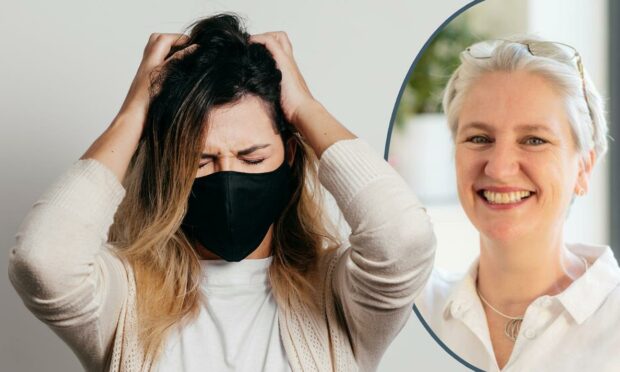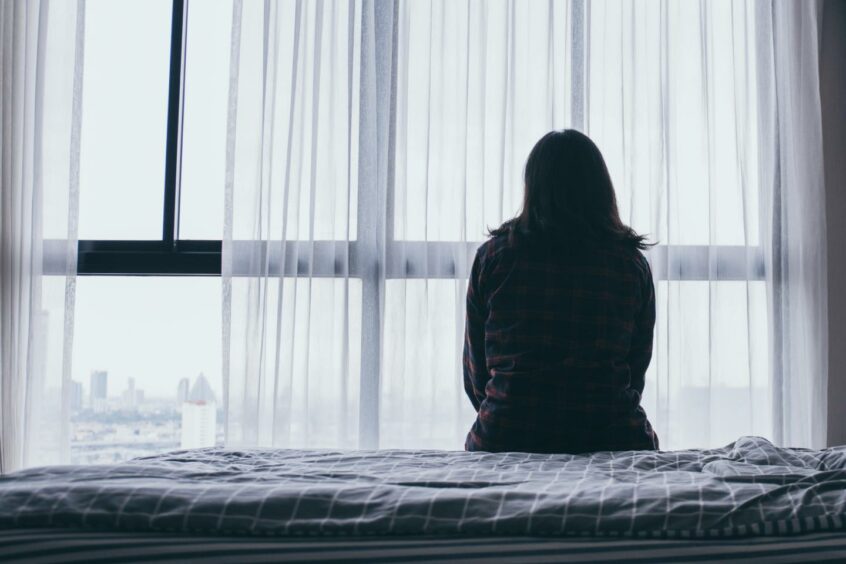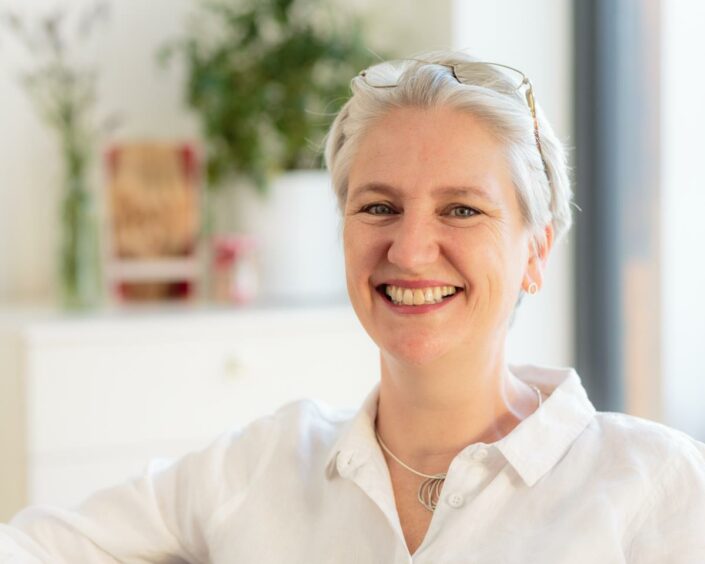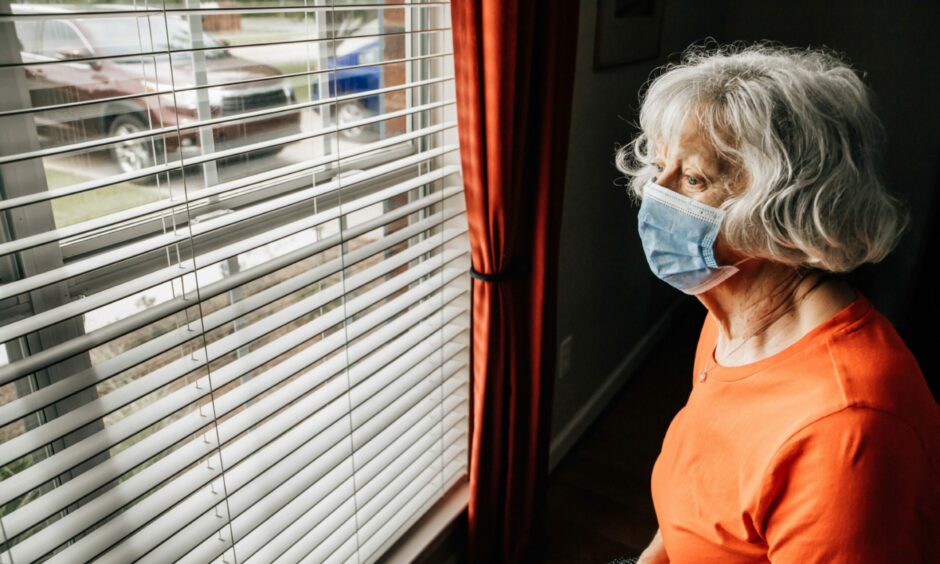Set to be scrapped completely within weeks, the legal requirement for face masks has been a safety net for those anxious about being infected with Covid.
And while many are looking forward to the day the rules change, others are looking ahead with concern.
Aberdeen psychotherapist Jennifer Broadley says most people will fall into one of these two camps – preparing to relish the new freedoms offered, or becoming increasingly aware of how careful they may need to be.
And for people who are classed as vulnerable, or are close to others in that category, this could lead to additional difficulties.
“Being part of a community who are no longer pulling together with one common sense of self-protective purpose may well increase their mental anxiety,” she said.
Jennifer sums it up plainly – the Covid-19 pandemic has reduced our “autonomy”
Lack of control: The root of some mask anxieties
She said: “Control is one of our nine emotional needs: adults need to be able to make decisions for themselves.
“When that gets taken away or reduced, it unbalances our emotional needs.”
Change of any type requires a person to rethink their short or long term future – and different people do that with different levels of confidence or caution.”
Making sure to use hand gels, anti-bacterial wipes and avoiding public transport will help people maintain some sense of control, she says.
“These are all small-but-important things that will help those who are more vulnerable in our society to exert some control over an environment and a virus that, whether we like it or not, is going to be part of the new world we live in.”
Jennifer hopes that “mental health [will improve] over time as [people’s] sense of personal choice and control returns.”
For many, lockdowns and restrictions have meant a lack of regular socialising. Like a sport, it can require practice to maintain a certain level of ability.
Jennifer said: “Social confidence is a skillset. When we’re young and we’re building that skillset, we don’t even know we’re building it.
“If that skillset has been reduced, and you try to go back to it with the same mindset, you might very well feel unsettled.
Anxiety in action
It is normal to feel unsettled like this as our reality changes.
This may cause some changes in your behaviour – that’s normal too.
“You might find yourself doing things that you never have before, like stuttering in your conversations,” she said.
“Or not being able to fully form ideas, or feel as confident to speak them out as you used to feel three years ago.”
After being accustomed to socialising in small groups, seeing more people at once can make someone feel stressed, says Jennifer, especially if some are unfamiliar.
These uncomfortable experiences have a knock-on effect.
It changes our sense of calmness and therefore our behaviour afterwards. I think it’s easier for us to get frustrated and anxious.”
Jennifer’s advice: Remember you’re not alone
Jennifer encourages everyone to remember that they are not the only person dealing with these anxieties and concerns.
Earlier this week more than 700 readers had their say on whether they’ll keep their face coverings.
Almost two-thirds said they’ll be binning their masks come April 18, but a sizeable number reported having reservations about the way ahead.
Jennifer said: “Tell yourself: this is not just me.
“Try to reassure yourself that millions of people will be feeling something similar.
“Lots of people are going to find this uncomfortable.”
But it is equally important to challenge yourself, Jennifer says, as these anxieties won’t go away by avoiding social interaction entirely.
“Also tell yourself: I won’t get better at anything by doing less of it.
“Get out there and do more of it.”
Speak openly
Jennifer, who runs therapy, counselling and coaching organisation Healthy Chat, passionately believes that talking honestly about your struggles will help.
“When you speak out, the most likely reaction from other people is: thank goodness [they] said that because I feel the same.”
Then, she says, “other people will be able to say: that’s okay, I feel that too.”
“Faking it”, according to Jennifer, achieves very little.
If everyone is standing there going: it’s only me, it’s only me – that’s not handling this.
“Everybody else is masking the stuff that you’re masking.
“We’re all faking it.”
Jennifer says it’s important to think realistically about the upcoming changes.
“From a mindset point of view, it would be a mistake to think that we’re going back to a world that is the same as it was in 2019 when the restrictions are lifted.
“It’s also important to recognise that the things that used to balance us and help us settle our mind will have changed as well.”



